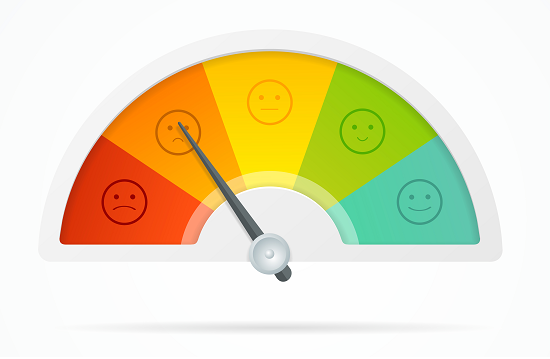Nobody wants drama in the shop. It’s bad for productivity, it’s bad for morale and it’s bad for business. And conversations about an employee’s sub-par performance can absolutely create drama if they go south. That’s why even shop managers who consider themselves straight shooters sometimes delay conversations about poor employee performance.

But once it’s clear poor performance isn’t due to a short-lived issue, it’s better to address it than to let the problems pile up. Otherwise, the problems end up falling on other employees (or customers), leading to all sorts of major problems.
While earlier is better, you can’t rush into conversations about employee performance without knowing how you want them to go. It often takes only thirty minutes for a productivity conversation to lead to improvement and continued growth. But an antagonistic conversation can just as easily lead to distrust, resentment and eventual termination.
Here are three tips to get a good outcome from a tough conversation.
Don’t Wait Too Long
Everybody has bad days. If a high-performer gets to work a few minutes late one day and has a good explanation, there’s probably no need to make it a performance issue.
But when a pattern starts surfacing, it’s better to bring the issue up with the employee than to keep waiting for the behavior to go away. This gives the employee an opportunity to recognize the issue and address it before it really blemishes their reputation among their co-workers (including you!). If an employee learns that a behavior has been reflecting poorly on them for months, there’s a good chance they’ll be angry that they weren’t told earlier so they could have an opportunity to correct it.
Ask for What You Need
When managers have a performance conversation with someone they respect, they sometimes soften their points so they don’t seem harsh or personal. For example, they might say “It seems like you’re having trouble getting to work on time.” or “Your productivity rate is down a good bit from what it was.”
The problem with these statements is that they don’t define failure and they don’t define success. The employee will leave the conversation knowing that they need to do better to keep their job, but not knowing what ‘good enough’ looks like. This is a frustrating and stressful place for anyone to be and it can lead to lower performance rather than higher performance.
If you really want to be kind to an underperforming employee, make sure they know what success looks like and that they have a plan to get there. That means ensuring they leave the conversation with success metrics that you can both measure easily and regularly.
Provide them with specific metrics where they’re underperforming. Tell them what their performance used to be, tell them when it started falling, and tell them how far it’s fallen. Then tell them what level metrics need to reach in order for them to once again be performing acceptably. And if it’s someone you really want to be successful, you can let them know that by asking them if there’s anything you can do to help them be successful and helping in the ways you can.
Revisit the Topic Frequently
If you’ve planned ahead for a conversation about performance, you probably know what you’re going to say and have thought about how the employee might respond to it. You know how big of a problem their performance is for your shop, and how quickly it needs to get fixed.
Unfortunately, your employee hasn’t had time to think about any of this, and probably has no idea they’re going to be having a serious conversation about performance shortcomings until they’re already several minutes into the conversation.
So while you’re laying out your case and telling an employee where they need to improve, that employee is probably doing a terrible job of listening to you. They might be nodding their head and trying to engage in conversation with you, but their mind is racing: “Are these fair criticisms? Why didn’t I notice myself falling short? What do I need to say to keep my job?” Just because your expectations are being stated clearly doesn’t mean the employee is hearing them.
This makes repetition more important in performance discussions than it is in most other conversations. Before ending the conversation, make sure that both of you agree on which metrics have substandard results, how far those metrics need to rise, and how frequently they will be measured. Finally, make sure to discuss these metrics with the employee frequently after the initial conversation – each discussion is another opportunity to emphasize their importance and the timeline for improvement.
To learn how Repair Shop Websites can help bring new business to your shop, call us at 855-294-6397 or email us at Team_RSW@RepairShopWebsites.com.